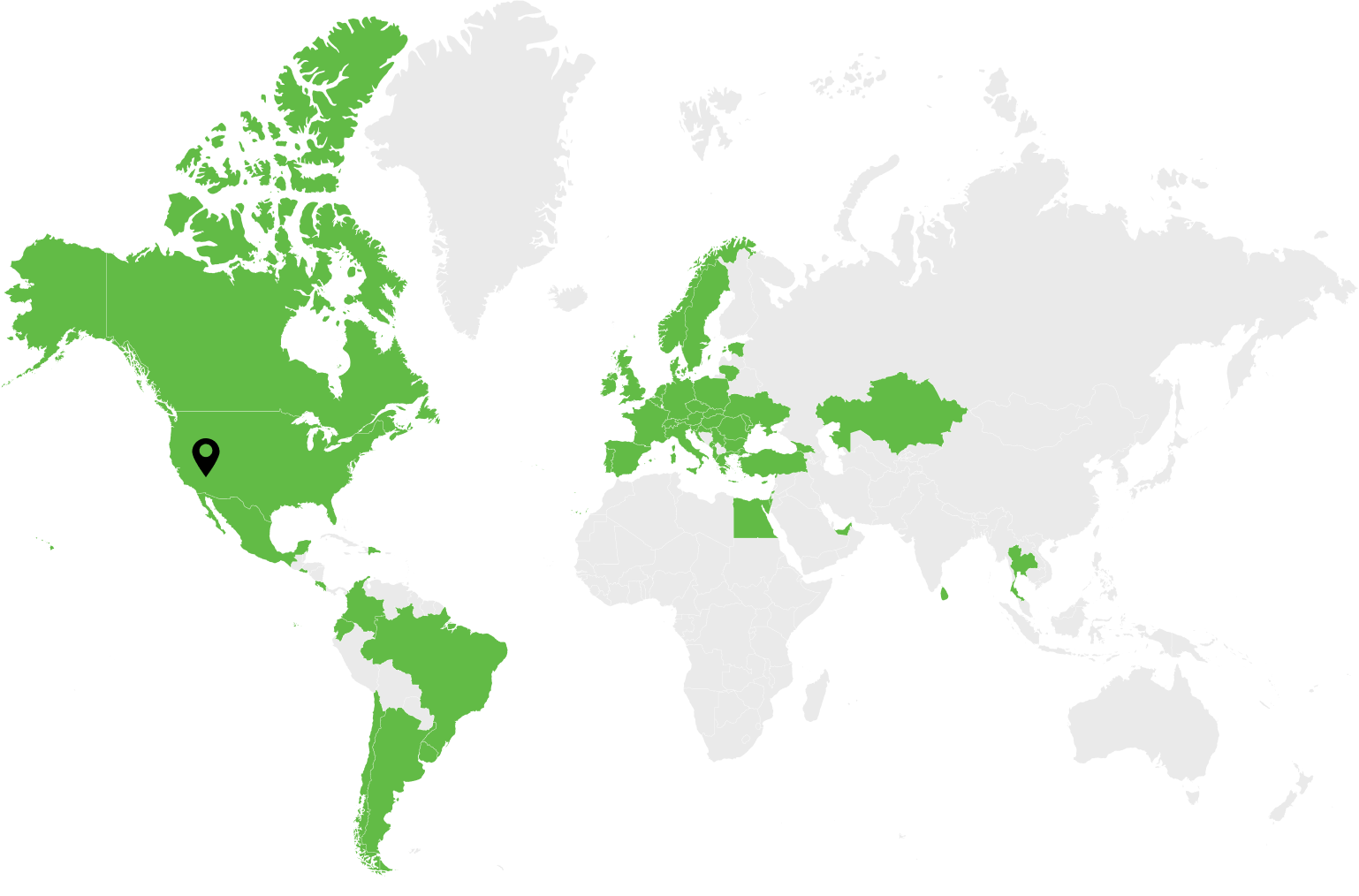There are very good reasons why talent demand for “software developers, quality assurance analysts, and testers is projected to grow 15 percent from 2024 to 2034.”
This surge reflects the growing need for specialized talent capable of delivering complex, high-stakes technology projects. Yet, when it comes to sophisticated technologies like AI, it takes more than specialized skills to meet software delivery (SD) goals. Rather, this level of execution necessitates the perfect balance between domain expertise and talent deployment.
Dev.Pro’s outsourcing and outstaffing services are known for blending specialized knowledge with disciplined delivery to support faster time-to-market and long-term growth.
The Importance of Domain Expertise
Behind every successful SD project is a team that not only understands technology but also the industry it serves. Domain experts bring specialized knowledge of regulations, workflows, and end-user needs that generalists lack. In turn, domain experts speed onboarding, improve efficiency, and mitigate risks.
Faster Onboarding
When you hire specialists from outside your domain, new Engineers and Developers often need 6 months to ramp up fully. In highly regulated industries such as fintech and healthcare, onboarding time can be significantly longer due to complex regulations, specialized certifications, and intricate workflows.
Bringing on a domain expert drastically reduces onboarding time because specialists are already familiar with industry best practices. For example, a fintech Engineer who knows PCI DSS can implement secure payment features immediately, or a healthcare Developer versed in HIPAA can build compliant EHR integrations without lengthy training.
Operational Efficiency
Recent research on over 200 SD projects found that technical debt averages $306,000 annually for every one million lines of code written. In turn, this technical debt results in an astounding 5,500 work hours that are spent on remediation instead of innovation.
Domain experts boost operational efficiency by reducing technical debt. To illustrate, a hospitality domain specialist developing a POS system can design and implement APIs for mobile ordering that adhere to industry standards and account for edge cases such as partial payments, order modifications, and multi-device synchronization. By engineering these integrations correctly the first time, they reduce the likelihood of costly rework.
Risk Mitigation & Compliance
Considering the average cost of a data breach in 2024 was nearly $5 million, the stakes for software failures and cyberattacks couldn’t be higher. In like fashion, compliance infractions in industries like eCommerce can dramatically hinder consumer confidence and overall brand reputation for retailers.
Domain experts help organizations mitigate these risks by addressing industry-specific challenges such as GDPR requirements for protecting customer information, PSD2 regulations for secure online transactions, and fraud prevention protocols. Their foresight ensures systems are built to withstand threats and audits, safeguarding both revenue and long-term customer loyalty.
Why Talent Delivery Processes are Essential
Expertise alone isn’t enough; how talent is managed is just as critical to SD project success. Strategic talent deployment processes keep projects aligned, reduce wasted effort, and ensure every milestone is met. By pairing skilled specialists with proven delivery frameworks, Dev.Pro clients gain reliable results and the ability to scale and adapt with confidence.
Agile Methodology
No matter if it’s blockchain, AI, or cloud development, 70% of software projects fail due to poor project management and a lack of internal organization. Importantly, you could employ some of the most talented Designers and Engineers on earth, yet still fall short on project goals without the right talent deployment processes in place.
To meet the ever-changing demands of the modern business world, Dev.Pro uses agile methodologies with our outsourcing and outstaffing services. Agile replaces rigid, long-term planning with short, iterative sprints that emphasize flexibility, collaboration, and feedback. This approach allows teams to pivot quickly when requirements shift, stay aligned with stakeholders, and deliver working solutions faster.
McKinsey & Company illustrates the benefits of agile businesses as follows:
- 92% report better customer satisfaction
- 76% see higher employee engagement
- 93% achieve stronger operational performance
Quality Assurance (QA) Discipline
To avoid major failures, organizations in industries such as fintech, healthcare, and eCommerce that rely on rapidly evolving software must strengthen their digital resiliency to meet the growing challenges of a digital-first world. From sophisticated cybercriminals to changing technologies and evolving marketplaces, quality assurance (QA) is a critical component for managing technical teams.
QA discipline provides the structure needed to deliver software that is reliable, secure, and fully aligned with industry and government requirements. By way of systematic testing, defect tracking, and validation, QA prevents costly issues before release, safeguarding sensitive data, user trust, and compliance readiness.
Continuous Integration (CI)
While quality software is obviously important, it isn’t the whole picture. As IBM explains, “In the digital economy, every second matters.” Meeting rising customer demands and critical time-to-market goals depends on a development team’s ability to manage code changes dynamically and in real time.
Continuous integration (CI) is a cornerstone of delivery excellence for IT talent deployment. With CI, code changes are automatically built, tested, and merged into a shared repository multiple times a day. For the hospitality sector, CI ensures restaurant POS platforms can deliver updates like new payment integrations without interrupting day-to-day operations. In turn, CI reduces integration headaches, keeps systems deployable, and ensures rapid feedback.
Conclusion
The MIT Sloan Management website poses an intriguing question: “It takes an army of trained, licensed, and accredited professionals to build a skyscraper …. But what about the software platforms … that have become crucial components of the world’s financial, military, medical, and communications ecosystems?”
Living in a world increasingly reliant on digital tools for everyday tasks like banking, shopping, and communication, the importance of skilled technical professionals is at an all-time high. Yet, meeting these challenges requires more than specialized skills; it demands the perfect balance of domain knowledge and talent delivery.
True success comes when the right people are paired with the right processes. While a fintech platform built by generalists may fail PCI DSS audits, a hospitality POS rollout could suffer late delivery due to skipped QA. To prevent such setbacks, not only must you train and certify specialists with the most critical standards, but you must also strategically deploy them for maximum impact.
Ready to Empower Your Next Software Project?
At Dev.Pro, we believe project success starts with people. By pairing domain experts with proven delivery processes, we help clients reduce risk, accelerate time-to-market, and build scalable solutions that last. Whether you’re in fintech, healthcare, hospitality, or beyond, our global talent network is ready to turn your goals into measurable results.
Let’s talk about how Dev.Pro can empower your success.

